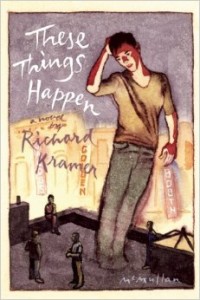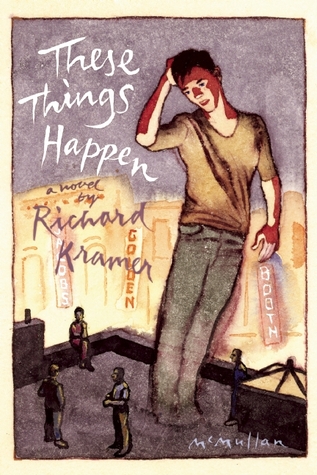The English Poems of Richard Crashaw
Edited by Richard Rambuss
University of Minnesota Press.
449 pages, $35.95
“No English poet was more enraptured by the image of God enfleshed, uncovered, and rendered corporally vulnerable than was Richard Crashaw,” Rambuss observed in an earlier study of the 17th-century devotional poet’s desire to become “Christ’s Ganymede.” Rambuss’ welcome new edition of Crashaw’s long unavailable poems allows readers to explore for themselves what Rambuss calls Crashaw’s “devotional rhapsodies” rung on what is outside “Christ’s excitingly vulnerable male body … that can be used to open and enter it (whips, nails, thorns, spikes, spears, knives, his own pen), as well as what can be made to stream out from it, once penetrated, in an unending flow (blood, tears, water, wine, ink, honey, cream, and inseminating ‘deaw of Life’).” Rambuss’ introduction addresses the history of the poet’s reputation, in particular the denigrating association of his religious nonconformity (his conversion to Roman Catholicism) with sexual nonconformity (effeminacy). And his glosses yield such fascinating information as a brief history of the representation of Christ’s genitals in European art and a summary of the patristic and medieval legend that, because Christ could not take on human nature while “the vice contrary to nature” was being practiced on earth, all of the world’s sodomites were eradicated at the moment of the nativity when a bright light appeared in the sky. Clearly, this is not a book for the spiritually faint of heart or for the sexually conservative.
By Raymond-Jean Frontain
 These Things Happen
These Things Happen
by Richard Kramer
Unbridled Books. 256 pages, $16.
Richard Kramer, a screenwriter, producer, and director for such shows as Thirtysomething, Once and Again, and Tales of the City, has written a first-rate coming-out novel with an ingenious twist: the coming out is not that of the main character but of the adults raising him. After his parents’ divorce, Wesley, who is straight, is being jointly raised by his father Kenny and his new gay partner George. They share custody of Wesley with his mother. Wesley’s best friend Theo, who is gay, comes out at a student assembly right after he’s elected to class president. When Theo is later gay-bashed and Wesley is hurt defending him, tensions and unspoken feelings among all parties are brought to the surface. In particular, George and Kenny must face some truths about themselves that seem self-evident to the younger generation. The novel displays many of the same charms (and some of the frustrations) of theauthor’s TV shows: delightfully witty dialogue, multiple points of view, and surprising insight. Indeed the character of George is one of the more endearing and fully realized in recent gay fiction. My one caveat would be not to be dissuaded from reading this book by its somewhat amateurish cover design, as what’s inside will appeal to fans of Kramer’s television projects (forty-somethings?), among other potential readers.
By Dale W. Boyer







